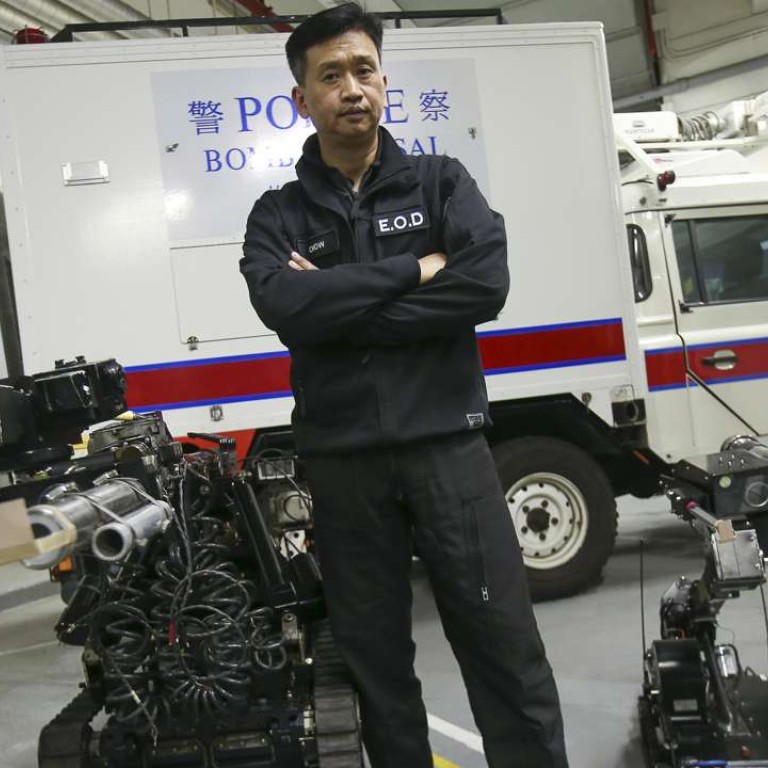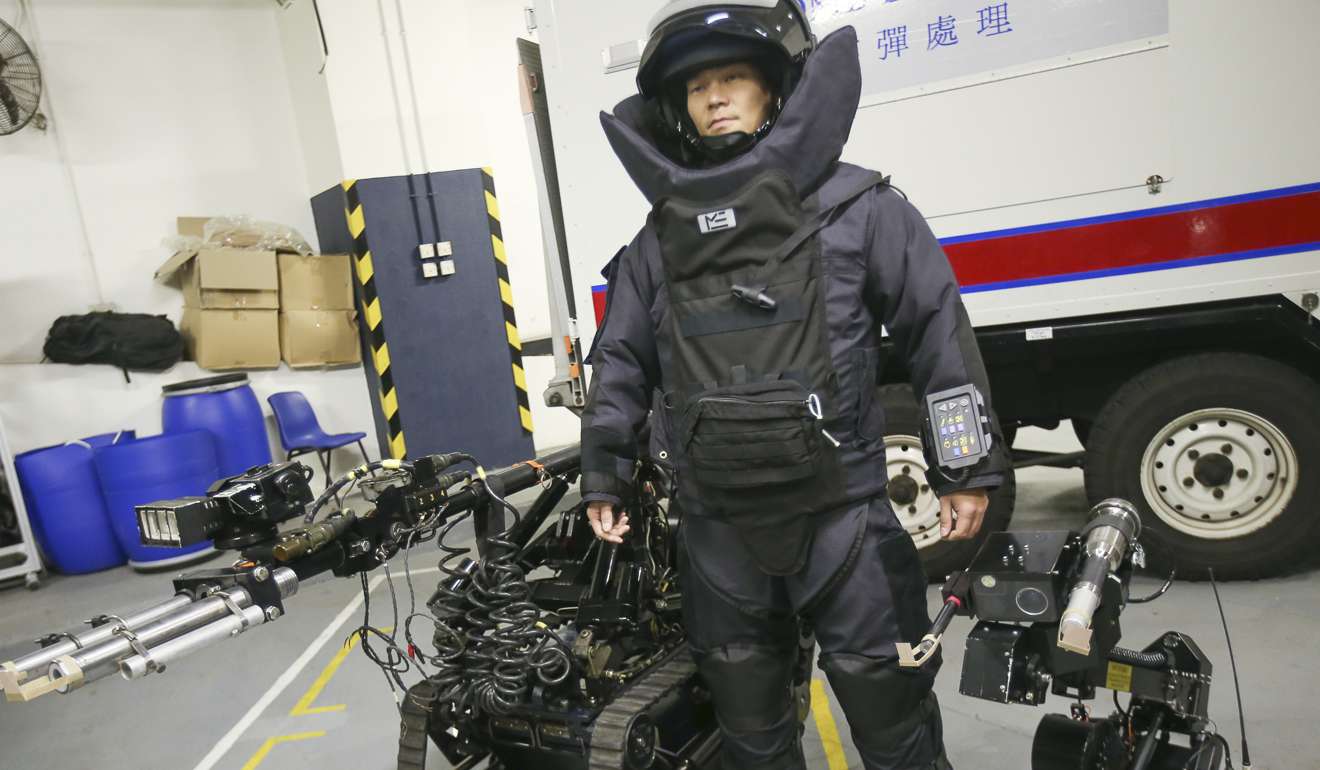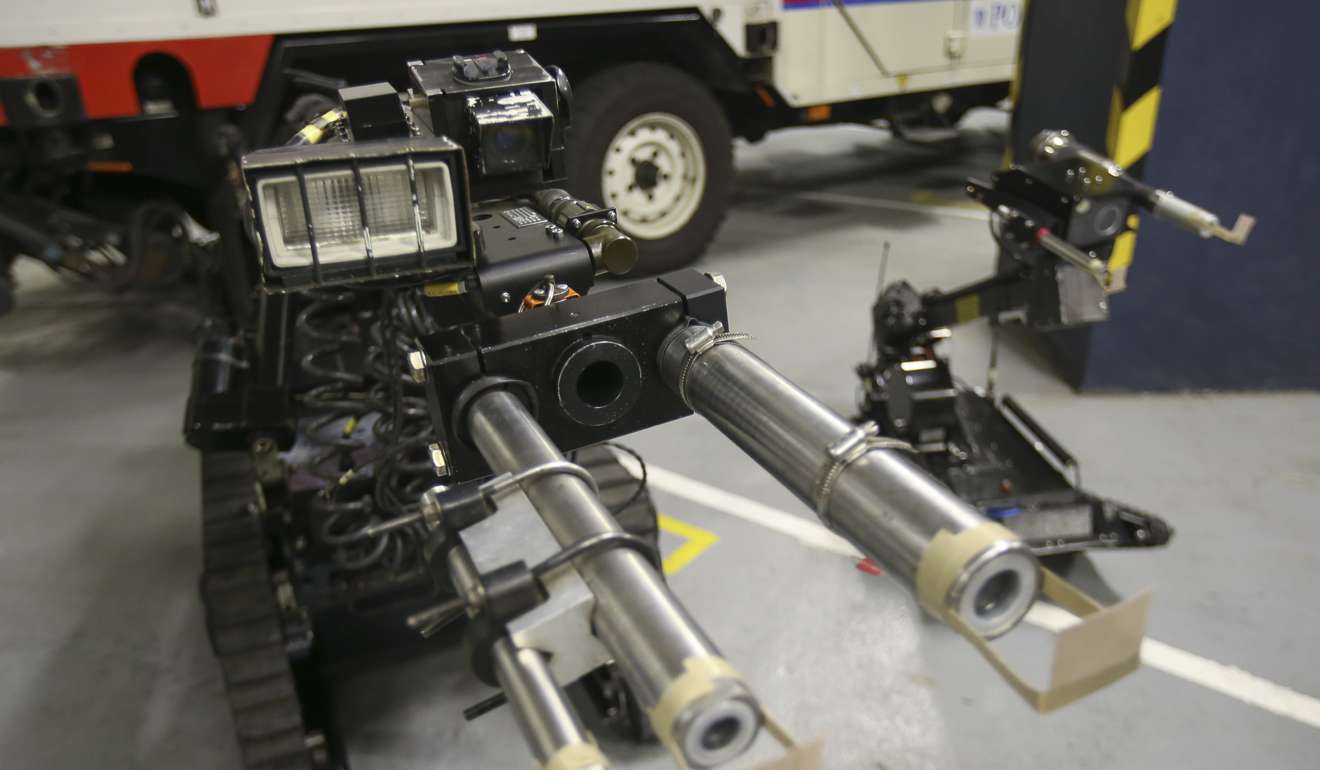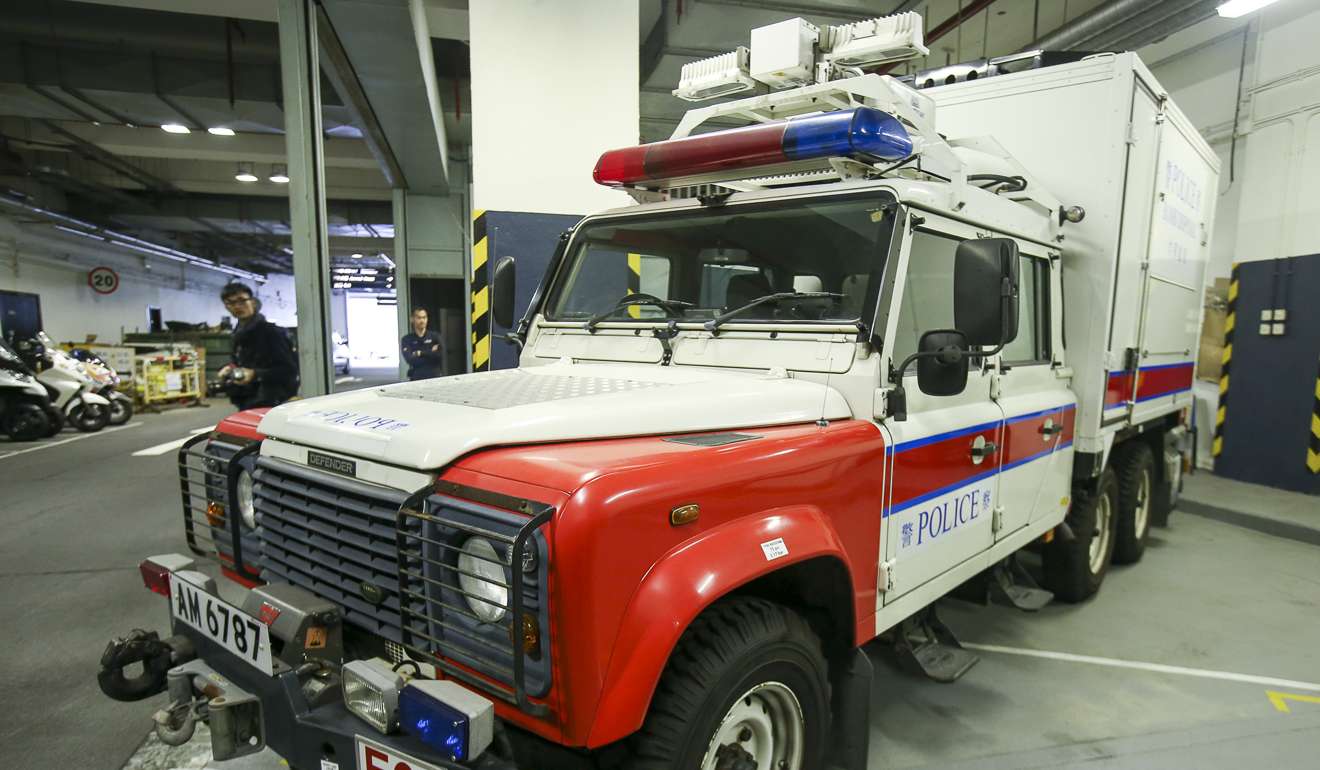
Hong Kong police step up anti-terror training amid increased worldwide bomb threats
Officers also strengthen information exchange with counterparts worldwide through a local bomb data centre, although they stress city is not a target
The Hong Kong police bomb disposal squad has stepped up training for frontline officers, including anti-terrorism units, by using real cases in drills and strengthening information exchange with counterparts worldwide through a local bomb data centre.
The force said Hong Kong should stay alert to terror attacks, although no intelligence had suggested the city was a target.
In an interview with the Post last week, Tony Chow Shek-kin, senior bomb disposal officer with the Explosive Ordnance Disposal Bureau, said suicide bombings had become a common terror tactic in recent years.

“Many of us know how to handle people armed with guns or knives. But our officers also need to know what to do if someone holding a bomb or a trigger is standing right in front of them. The security risk involved with bombs moves with the suicide bombers, unlike general bombs that stand still,” the veteran senior superintendent said.
“Terrorists’ tactics change rapidly. Therefore any drills or exercises should be lifelike. We also make similar suicide bombs for training.”
In March last year, two suicide bombers carried explosives in large suitcases and attacked a departure hall at Brussels Airport. A third suicide bomber was prevented from detonating his bomb because of the force of the other explosions. His bomb was later destroyed.
It is understood the force used this case in a drill at its base, instead of at Hong Kong International Airport.

Chow, who has 21 years of experience in bomb disposal, said intelligence units from 69 countries including the US and Britain had joined up with the Hong Kong bomb data centre, which was established a decade ago.
The units report bomb incidents in their own countries and offer intelligence to the data centre. The Hong Kong force for its part reviews, reports and passes on information or tips to colleagues.
“It is important to understand the latest modus operandi of terrorists and how overseas counterparts handle this,” Chow said.

Counterterrorism has been one of the police commissioner’s operational priorities over the past decade. Last month, police chief Stephen Lo Wai-chung said he saw “an increasing threat to Hong Kong” by citing terrorist attacks in Europe, the US and Southeast Asia, and that the force had to be vigilant and ensure readiness even in the absence of intelligence to indicate that Hong Kong was under imminent threat.
Chow said the Explosive Ordnance Disposal Bureau held seminars with airport stakeholders every year and conducted training drills for the railway system to cope with chemical, biological, radiological and nuclear agent attacks.
“But we have to strike a balance. If we hold too many talks and drills in the community, members of the public might think Hong Kong is under threat. That is not good.”

